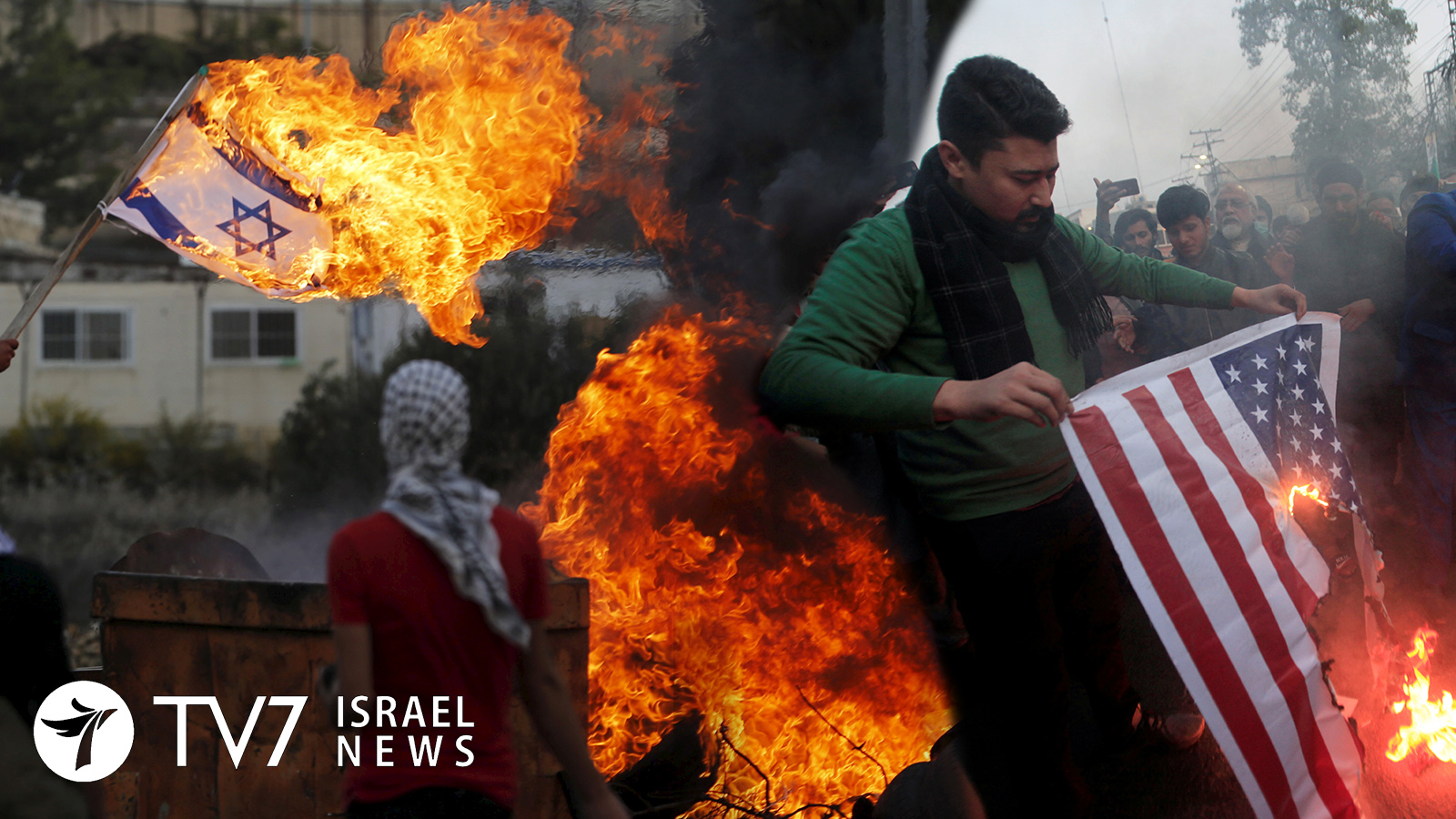These first days of the 21st year of the 21st century are marked by a considerable and continuous increase of tensions across the Middle East.
The situation began to deteriorate on December 20th of, when an unprovoked rocket attack targeting an Iraqi military installation near Kirkuk killed an American civilian contractor and injured several military personnel from both nations.
U.S. aircraft retaliated for the attack by striking three Iranian-backed militant installations in western Iraq and two in eastern Syria. All were operated by the radical Iraqi-based Kataib Hezbollah militia terror group that is part of the Popular Mobilization Forces (PMF), but is directed and supplied with equipment from Tehran’s Islamic Revolutionary Guards Corps’ elite Quds Force. At least 25 operatives were reportedly killed, including four of its top commanders.
Appearing alongside Secretary of State Mike Pompeo and the Chairman of the Joint Chiefs of Staff to provide details of the operation, U.S. Secretary of Defense Mark Esper said that “The Department of Defense took offensive actions in defense of our personnel and interests in Iraq by launching F-15 Strike Eagles against five targets associated with Kataib Hezbollah, which is in an Iranian sponsored Shiite militia group.” The top American defense chief added, “And I would note also that we will take additional actions as necessary to ensure that we act in our own self-defense and we deter further bad behavior from militia groups or from Iran.”
Two days after the American retaliatory attack on the Kataib Hezbollah militia, thousands of the group’s militiamen and their supporters staged a violent demonstration at the U.S. Embassy in Iraq. Local security guards and American-trained Iraqi Special Forces responded with crowd dispersal means, when dozens of Shi’ite protesters smashed through the main door and set fire to a reception area at the Bagdad diplomatic facility.
The U.S. State Department later released a statement confirming that all American personnel were safe and underscored there were no plans to evacuate the compound.
U.S. President Donald Trump sent out a message on Twitter, in which he vowed the Islamic Republic of Iran “will be held fully responsible” for “orchestrating” an “attack on the U.S. Embassy.” Less than three days later on 3 January 2020, the American leader followed through on that pledge by authorizing the targeted assassination of the Islamic Revolutionary Guards elite Quds Force top commander, General Qassem Soleimani, along with several commanders of local Iranian-backed militias. “At my direction, the United States military successfully executed a flawless, precision strike that killed the Number One terrorist anywhere in the world, Qassem Soleimani,” Trump later stated, whom he said “was plotting imminent and sinister attacks on American diplomats and military personnel, but we caught him in the act and terminated him.”
In an announcement televised from his Florida resort, Trump emphasized that “Under my leadership, America’s policy is unambiguous to terrorists who harm or intend to harm any American. We will find you; we will eliminate you; we will always protect our diplomats, service members, all Americans; and our allies.”
Soleimani’s death caught the Ayatollah Regime’s leaders, regional proxies and allies off guard. The Quds Force commander was regarded as the second-most powerful figure in the Islamic Republic and the closest confidante of Iran’s Supreme Leader Ayatollah Ali Khamenei. Soleimani was directly responsible for the implementation of the Islamic Revolutionary expansionist foreign policy, and directed countless Iranian-backed attacks against Western forces that claimed the lives of hundreds of American military personnel.
Israeli Prime Minister Benjamin Netanyahu openly praised President Donald Trump for the move, announcing that “Qassem Soleimani brought about the death of many American citizens and many other innocent people in recent decades as well as in the present.” Stressing that “Soleimani initiated, planned and carried out many terrorist attacks across the Middle East and beyond,” the Israeli leader declared “President Trump is deserving of all appreciation for taking decisive, strong and quick action. And I would like to reiterate that Israel stands completely alongside the U.S. in its just struggle for security, peace and self-defense.”
While Soleimani’s demise was warmly welcomed in Jerusalem, it is important to note that Israel was not part of the American operation. The Israeli military has nevertheless raised its level of alert as a precaution against concern over possible Iranian attempts to exact revenge by targeting United States’ closest regional ally.
U.S. Secretary of State Mike Pompeo spoke last night by telephone with Prime Minister Netanyahu. According to the top American diplomat, the conversation focused on the importance of halting Iran’s cancerous influence in the region and removing the threat it poses. Pompeo further stated that, as always, the United States is grateful for Israel’s strong support in the battle to eradicate terrorism.
